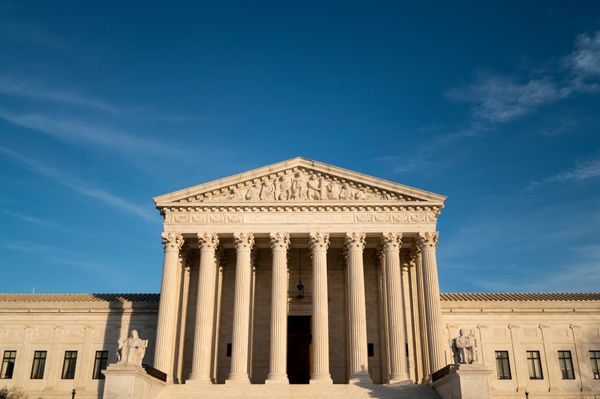
Donald Trump has threatened to impose tariffs on pharmaceutical products and semiconductors as soon as 1 August, the latest deadline for the introduction of his “reciprocal” levies on individual countries.
The US president told reporters late on Tuesday the taxes on drug imports could be announced “probably at the end of the month, and we’re going to start off with a low tariff and give the pharmaceutical companies a year or so to build, and then we’re going to make it a very high tariff”.
He added he had a similar timeline for imposing levies on semiconductors, as he believed it was “less complicated” to implement tariffs on the chips required by all electronic devices, but did not provide further details.
Earlier in the month, Trump told a meeting of his cabinet that he expected to raise tariffs on pharmaceuticals as high as 200%, once he had given drug companies a year to a year and a half to bring their manufacturing to the US. He also threatened a 50% tariff on imported copper in an effort to increase US production of the metal.
The Trump administration began investigations in April into imports of pharmaceuticals and semiconductors into the US under section 232 of the Trade Expansion Act of 1962, as part of an attempt to impose tariffs on both sectors on national security grounds.
Any levies imposed on pharmaceuticals are expected to hit drugmakers including Eli Lilly, Pfizer and Merck, which have overseas production sites, while such a move risks increasing prices for US consumers. Any tariffs on semiconductors are predicted to affect chipmakers and the companies such as Apple and Samsung whose smartphones and computers require chips.
Trump’s latest pledge to escalate the global trade war comes as the US’s trading partners are waiting for a temporary pause on the “reciprocal” tariffs announced on 2 April to expire on 1 August, after the deadline was extended from 9 July.
It also coincided with the White House launching an investigation into Brazil’s trading practices, which it called unfair. Investigators will look into Brazilian government policies “related to digital trade and electronic payment services; unfair, preferential tariffs; anti-corruption interference; intellectual property protection; ethanol market access; and illegal deforestation”, according to a statement from the trade representative, Jamieson Greer, and whether these restrict US trade.
He cited “Brazil’s attacks on American social media companies as well as other unfair trading practices that harm American companies, workers, farmers, and technology innovators”.
Trump last week announced 50% tariff on Brazil, despite the fact it has a trade deficit with the US, citing a “witch-hunt” against the country’s former president Jair Bolsonaro.
Trump said on Tuesday he had struck a trade pact with Indonesia to reduce the tariff rate levied on the country’s goods, after negotiations.
The south-east Asian country made multibillion-dollar commitments to buy US energy, agricultural products and 50 Boeing jets, Trump said in a social media post. As a result, Indonesian goods entering the US would face a 19% tariff, significantly below the 32% level previously threatened.
Earlier in July, the president announced plans to impose US tariffs of up to 40% on goods imported from 14 countries, including Bangladesh, Japan and South Korea, but said he was allowing more time for negotiations.
The EU remains in negotiations with the White House, after Trump threatened a 30% tariff on EU goods, which the bloc’s chief negotiator with the US warned would eliminate transatlantic trade.
Maroš Šefčovič, the EU trade commissioner, said the bloc would be using the time until 1 August to find a “negotiated solution” to ensure transatlantic trade, which is worth €4.4bn (£3.8bn) a day, continued.
Despite the jibe that “Trump always chickens out” in the tariff war – Taco for short – the lack of widespread retaliation from the US’s trading partners for rocketing tariff rates means the US has so far been able to raise almost $50bn (£37.3bn) in additional customs revenue, according to official figures.
US revenues from customs duties between April and June were $64bn, which is $47bn higher than the revenues for the same period a year earlier, according to US Treasury data released on Friday and highlighted by the Financial Times. Until now, only China and Canada have vowed to impose retaliatory tariffs on US goods entering their countries.







